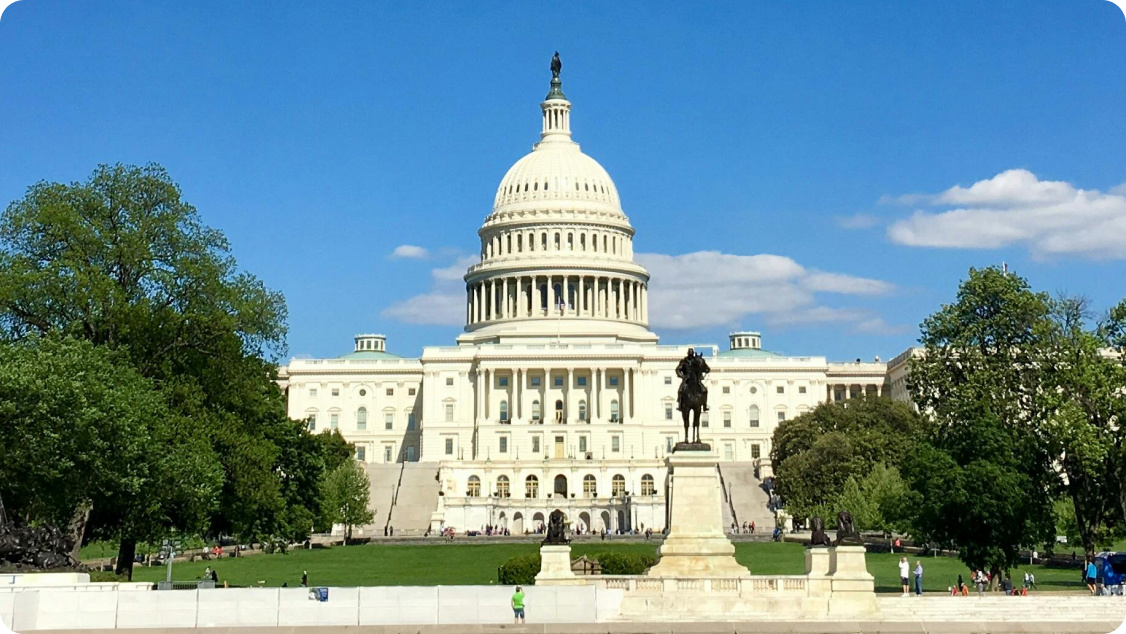
U.S. General Services Administration (GSA) launches new initiative for sustainable federal buildings
The U.S. General Services Administration has launched a new initiative to identify and implement low-embodied carbon building materials in federal facilities as part of a broader effort to decarbonize the built environment. This move comes as part of a $30 million investment from the Inflation Reduction Act (IRA), and part of the Investing in America Agenda, aimed at enhancing the sustainability of federal buildings.
On August 1, 2024, the GSA, in collaboration with the U.S. Department of Energy, issued a Request for Information (RFI) seeking innovative technologies in several categories, including low-embodied carbon building materials. An RFI is the formal process of requesting and gathering information on goods or services, and is the first step in deciding which innovative technologies will be used in this program. Low-embodied carbon building materials are particularly significant as the construction industry grapples with its substantial carbon footprint. According to the U.S. Environmental Protection Agency, construction materials used for buildings and built infrastructure account for more than 15% of total greenhouse gas emissions worldwide.
What is embodied carbon, and why is it important in construction?
Embodied carbon refers to the greenhouse gas emissions associated with the manufacturing, transportation, installation, maintenance, and disposal of building materials. By focusing on low-embodied carbon building materials, the GSA aims to reduce the environmental impact of federal buildings before they even become operational.
"With 42% of emissions coming from the built environment, Inflation Reduction Act funding will be instrumental in achieving our net-zero emission goals for federal buildings."
How will this initiative affect U.S. construction?
The RFI is open for submissions until September 13, 2024. Selected technologies will be piloted in one of GSA's programs, including the Green Proving Ground, which has already evaluated 107 technologies since 2011, with 23 being deployed across more than a third of GSA's federally owned portfolio.
This initiative is part of a larger $3.4 billion allocation from the Inflation Reduction Act for GSA to promote the development and manufacturing of low-embodied carbon building materials, and is part of the U.S. target of carbon neutrality by 2050. The agency estimates that these investments could reduce its operational greenhouse gas emissions by over 2 million metric tons of CO₂, equivalent to removing about 500,000 gasoline-powered passenger vehicles from the road for a year.
The importance of environmental product declarations (EPDs) in sustainable construction
Environmental product declarations (EPDs) serve as a standardized, transparent method to communicate the true environmental impact of products. By providing comprehensive data on embodied carbon and other environmental indicators, EPDs enable informed decision-making in the selection of truly sustainable building materials. Stakeholders in the construction industry are encouraged to prioritize the development and use of EPDs to support the transition to low-carbon buildings and contribute to the urgent goal of reducing the built environment's carbon footprint.
One Click LCA’s EPD Generator helps manufacturers automate and scale up the EPD creation process
LCAs and EPDs are essential for analyzing and minimizing the environmental impacts of products and processes throughout their entire life-cycles. One Click LCA is a global end-to-end sustainability platform for construction and manufacturing. The EPD Generator tools help manufacturers conduct accurate LCAs and create EPDs for any product category across the globe. A team of dedicated EPD experts can help you comply with local regulations and win procurement contracts.
Carbon Experts Newsletter
Industry news & insights — straight to your inbox
Want to learn more?
Aileen Carroll • Aug 09 2024
Melina Zacharia • Jul 17 2024
Aileen Carroll • Oct 18 2024
Melina Zacharia • May 22 2024
